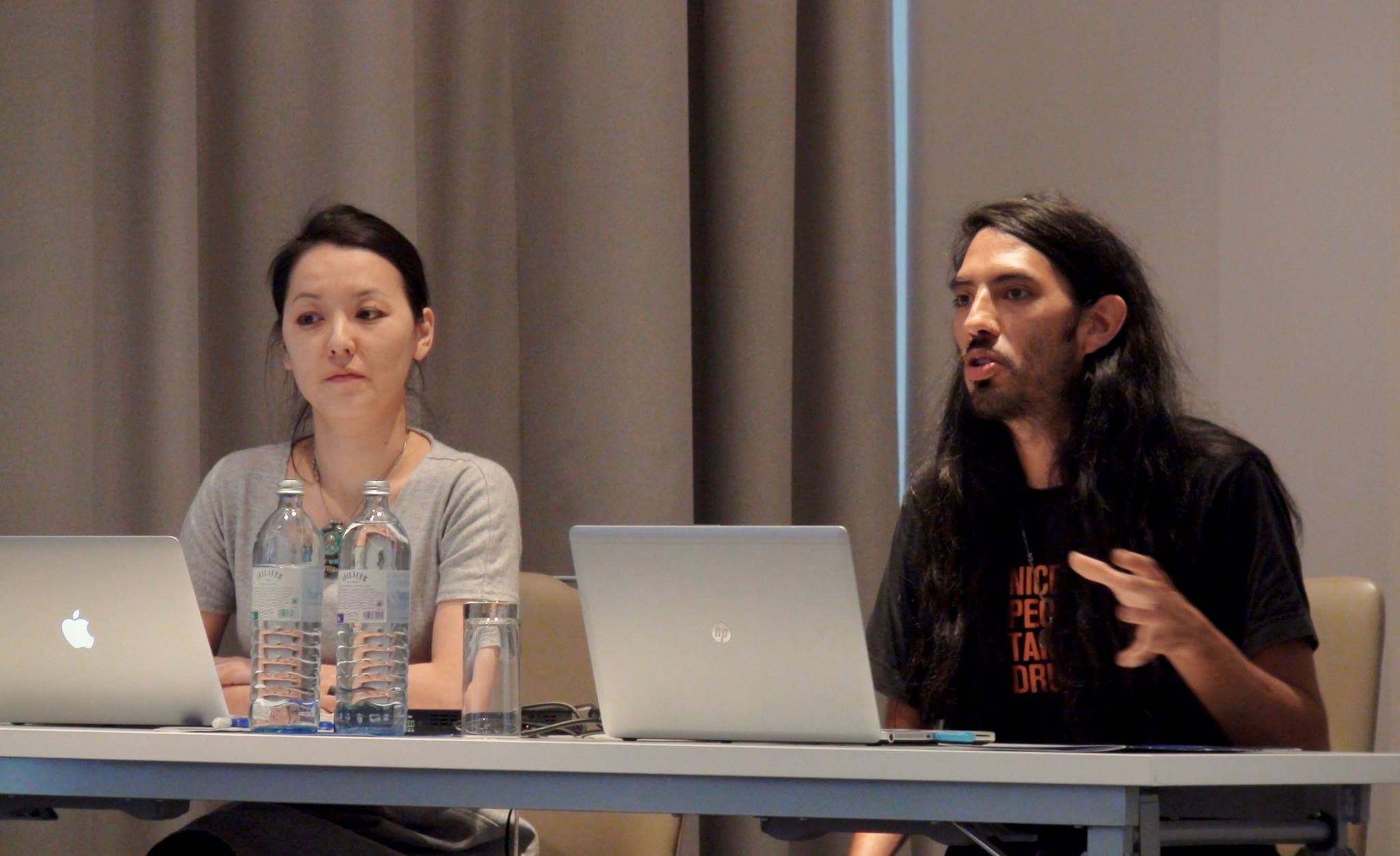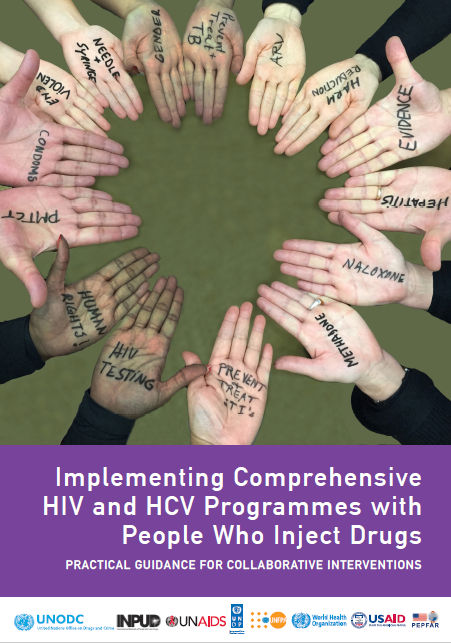Written by Brun Gonzalez, Chair of Board of Directors of the International Network of People who Use Drugs (INPUD) and Judy Chang, INPUD Executive Director

Photos provided by: Brun Gonzalez
The Injecting Drug User Implementation Tool (IDUIT), jointly developed by INPUD and the United Nations Office on Drugs and Crime (UNODC), was released this April and is the fourth publication in a series of tools on implementing HIV programs with key populations. It offers practical guidance on implementing HIV programs for and with people who inject drugs (PWID) across the HIV care continuum and contains examples of best practices from around the world that can be used to support efforts to plan programs specific to the PWID community. The tool covers prevention, care, treatment, and support interventions and focuses on partnerships with or by PWID organizations.
The IDUIT is the product of a collaborative process between PWID, advocates, service providers, researchers, government officials, UN agencies, development partners, and nongovernmental organizations. The tool provides a strong platform for emphasizing the importance of community empowerment in reaching PWID with HIV services.

“The IDUIT is the result of a very positive and important collaboration between the United Nations and the international community of people who use drugs that reflects… high-level participation and engagement that answers the affirmation ‘nothing about us without us’ in a meaningful and constructive way,” said Brun Gonzalez.
A multidisciplinary group of people came together for a consultation meeting in Bangkok to elucidate optimal approaches for designing, developing, and implementing comprehensive services that meet the real needs of the PWID community. When developing the tool, it was also important to maintain a broad focus on issues that other key populations most at risk for HIV often face.
The sessions were attended by representatives from the UNODC, the Joint United Nations Programme on HIV/AIDS, the World Health Organization, civil society specialists, and members of the PWID community. Individuals working on health and harm reduction service provision, community organizing, and advocacy campaigns brought their unique experiences to the table to discuss best practices and efficient models based on community involvement and strengthening.
The convergence of “top-down” and “bottom-up” perspectives allowed for a rich, comprehensive process that brought together the best of both worlds to develop the IDUIT: the evidence-based, biomedical model and the pragmatic, rights-based model derived from what was referred to as “community wisdom” during the consultation.
It is essential to seek representation of and participation from the people who are immediately affected by the decisions being made when looking to improve harm reduction services and implementation tools. The IDUIT is one step in a long process of fine-tuning and updating the mechanisms set in place at an international level.
